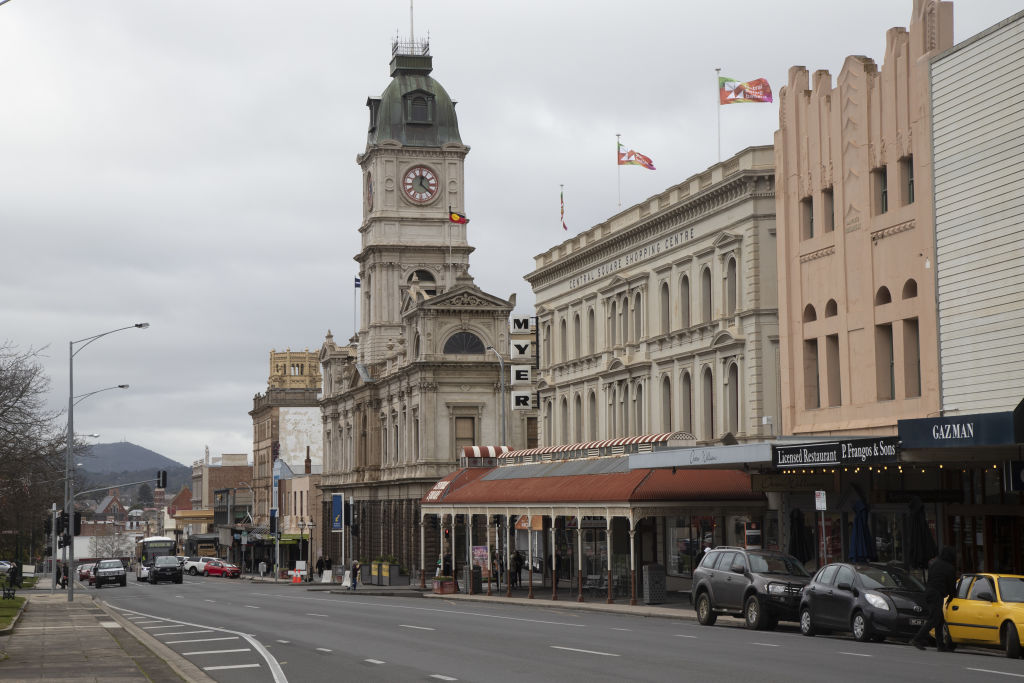
Regional stamp duty discounts could drive more businesses to leave Melbourne
Fast-tracked stamp duty waivers for commercial properties in regional Victoria could trigger a wave of new listings in the new year, and encourage more companies to relocate outside of Melbourne.
The Victorian government announced on Tuesday as part of the budget that it would bring forward its 50 per cent stamp duty concession for commercial and industrial properties in regional Victoria, with the aim of supporting businesses to open, relocate or expand.
The move was praised by the Property Council for its potential to lure new investors from Melbourne, overseas or interstate into regional areas.
Interim executive director Matthew Kandelaars said the discount “provides a welcome incentive for investors to look at job-creating opportunities outside of Melbourne”.
But some real estate agents have questioned whether the new measures would have a significant impact, particularly for small local businesses and the struggling retail sector.
First announced in response to the devastating bushfires that ravaged regional Victoria, a 20 per cent reduction in stamp duty payable was available for properties transacted after July 1, 2020, with the concession scheduled to increase by 10 per cent each financial year until 2023.
The new measures bring forward the 50 per cent discount to contracts entered into on, or after, January 1, 2021, and include the regional cities of Geelong, Ballarat and Bendigo.
Ray White Ballarat director Trevor Booth said the regional city’s commercial property market remained active throughout the pandemic, but he welcomed any incentive for further investment.
“The stamp duty saving may not necessarily have a big impact, but any concessions or waivers are going to help to a degree,” Mr Booth said.
He estimated the saving on a $1 million property would be roughly $25,000. “Whether in the scheme of things it’s going to make a massive difference, is yet to be seen,” he said.
“It might be the trigger that brings regional centres more into the line of sight of some of these big companies that never really gave us a thought.”
He said he knew of several Melbourne businesses that had already moved to scale back their city presence and open an office in Ballarat.
“That’s been to our advantage and to the detriment of the owners of properties in Melbourne,” he added.
Tuesday’s announcement could drive a wave of regional commercial properties to come onto the market in the new year, according to Burgess Rawson director Billy Holderhead.
“I know of several serious properties that have been held back by the vendors, thinking it would be favourable to hold onto until 2021.”
Mr Holderhead, who primarily focuses on properties in the essential services sector such as supermarkets and service stations, said there was pent-up demand in the market caused by an undersupply of properties throughout 2020.
He said the stamp duty concessions could help to push up prices, with vendors pocketing the money instead of the state’s coffers.
“We’re certainly going to see records broken because money is cheaper,” he said. “It smacks of June 2009, coming out of the GFC when all the stimulus started to kick in and all of a sudden, it was like bang!”
But he did not believe the reduced stamp duty fees would be the deciding factor in many transactions.
“The typical buyer in our market, they probably just compare the cost of money versus return, versus risk,” Mr Holderhead said.
He also questioned whether the changes would promote economic benefit on a broader scale in the short term.
“A tenant in an industrial estate in Geelong might say, ‘it’s cheaper for me to buy and build’, but it will take a while for that to translate. That type of investment takes a long time to trickle down.”
For struggling retail business owners, Mr Booth doubted the measures would help. “We’re not talking about tenants who rent properties and run businesses, and they’re the ones who have struggled the most,” he said.
“I don’t think this is going to have a big impact on the retail sector because many of those people generally don’t buy properties.”










